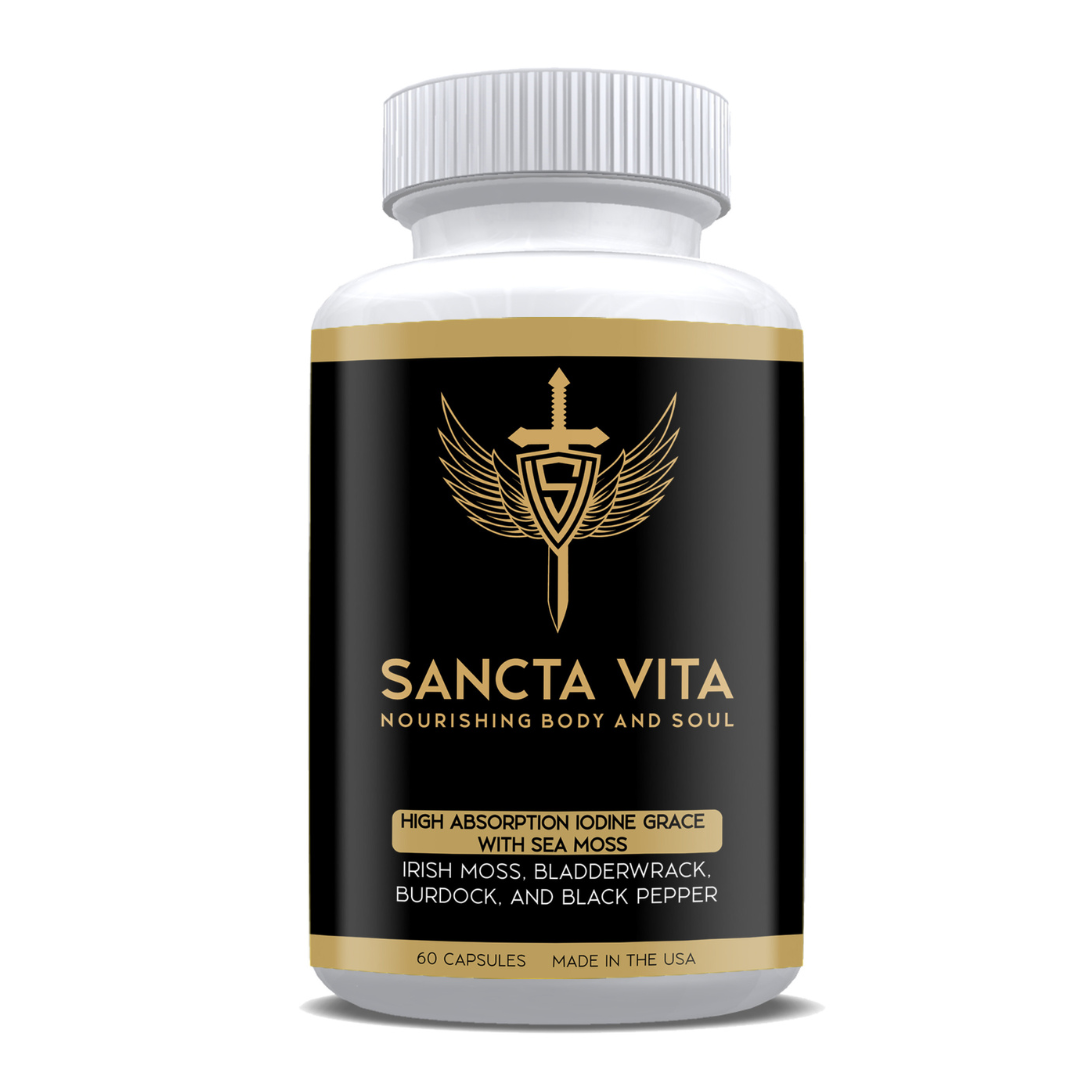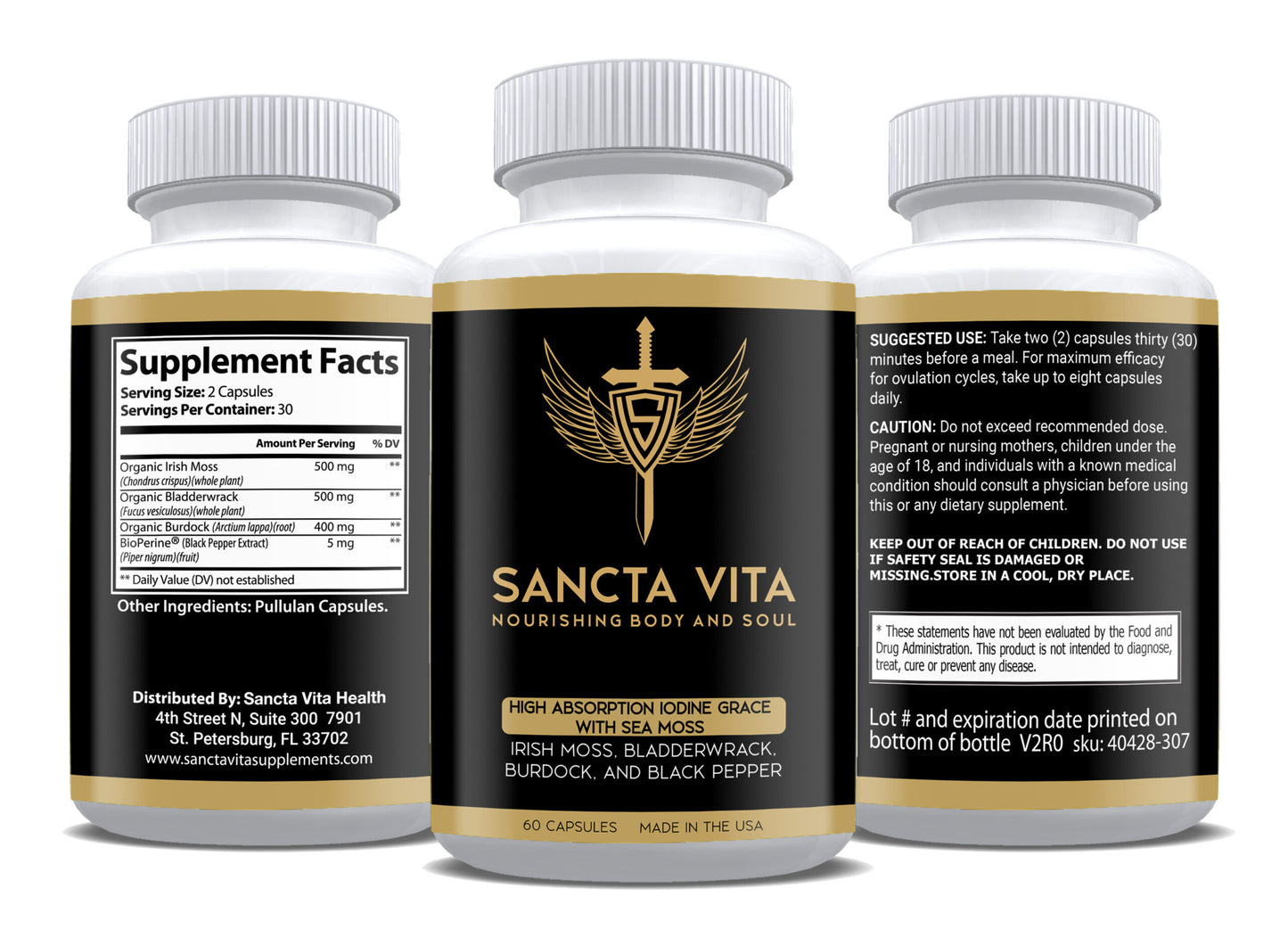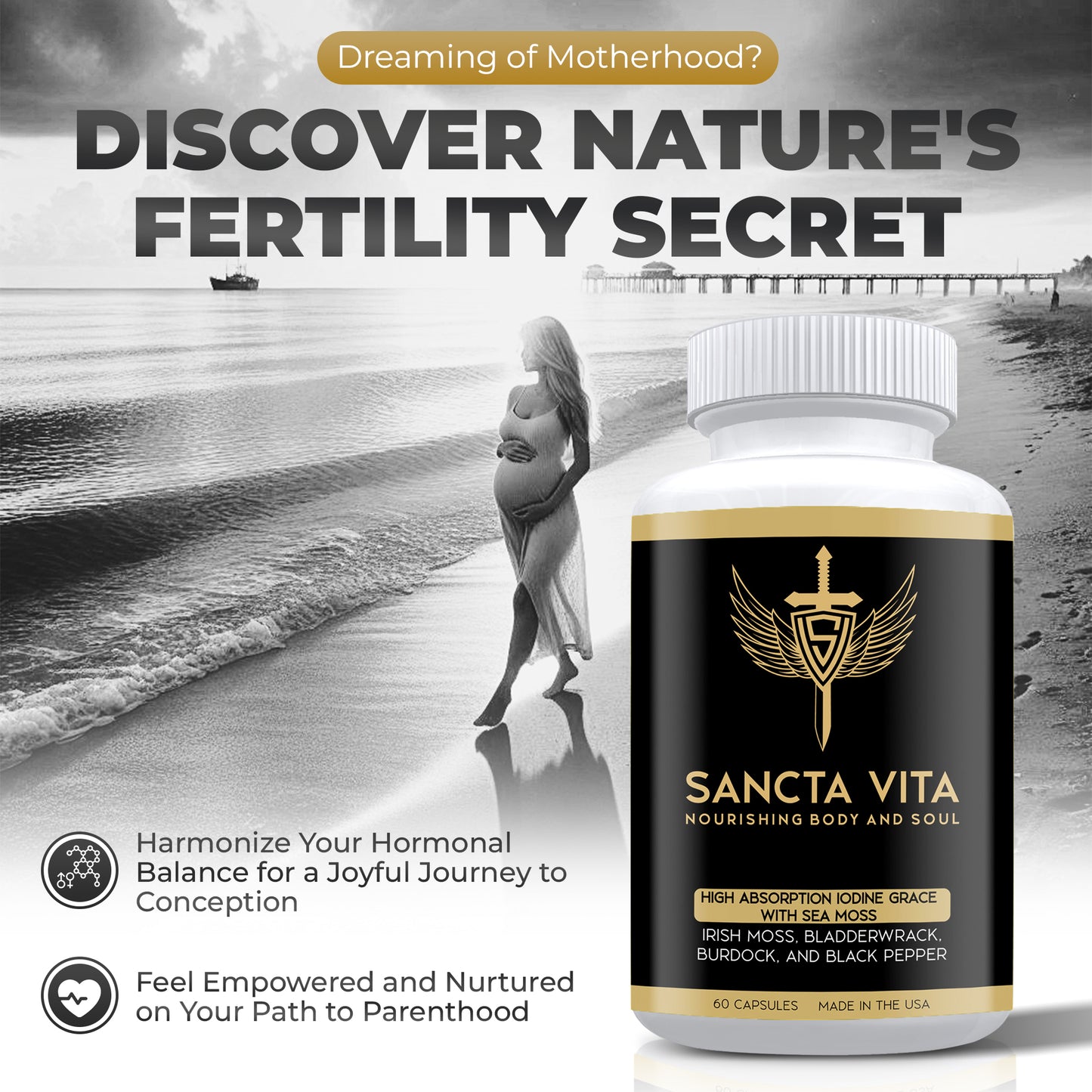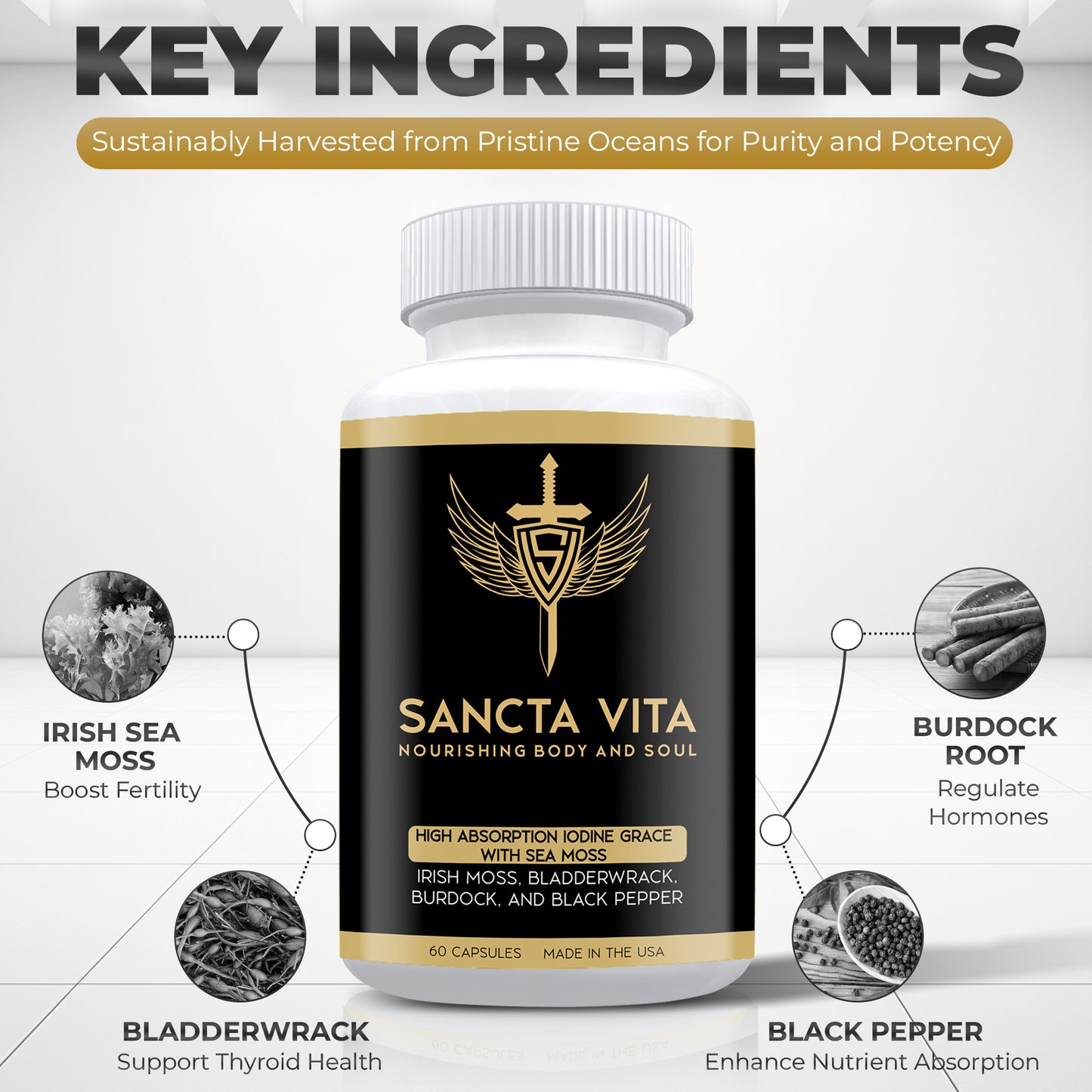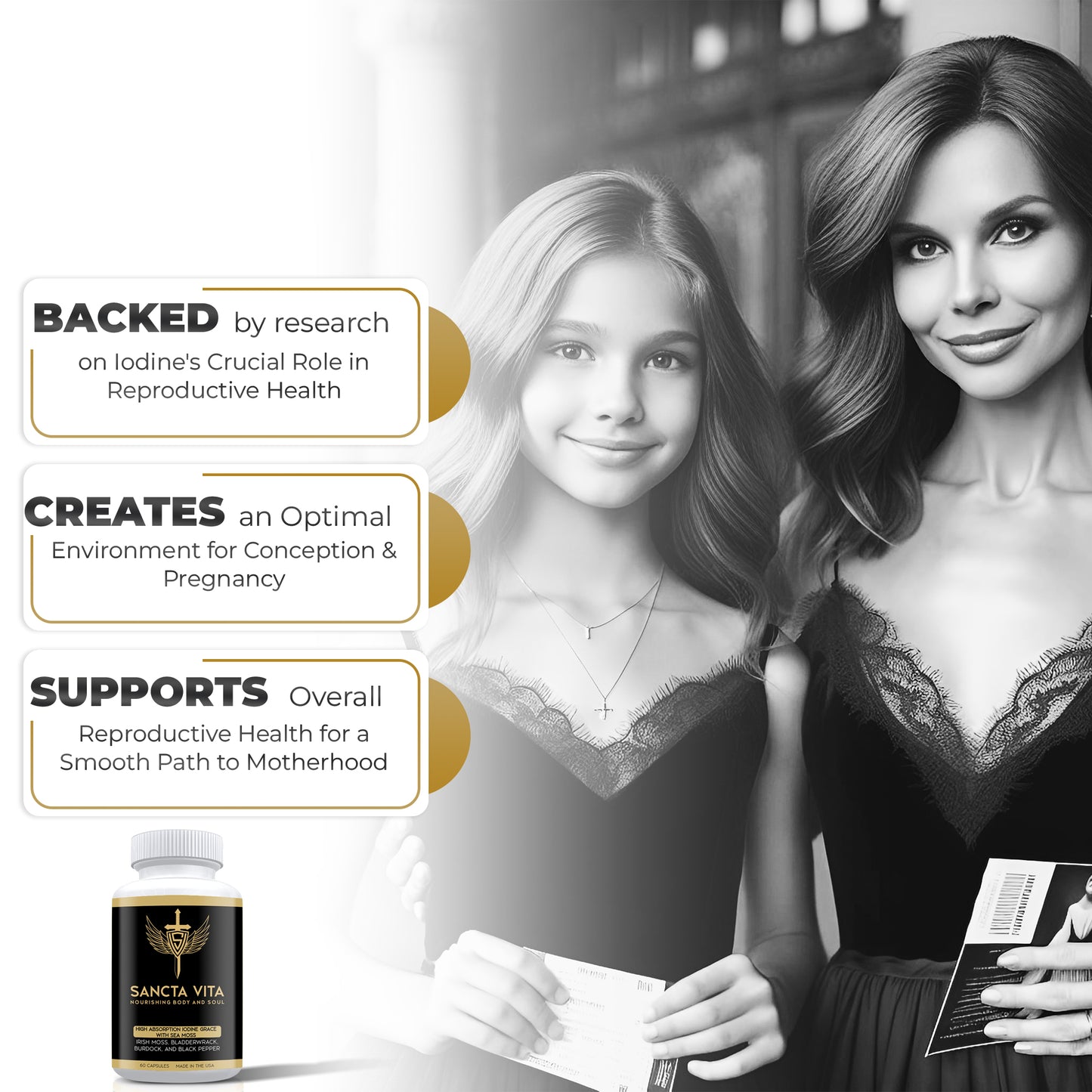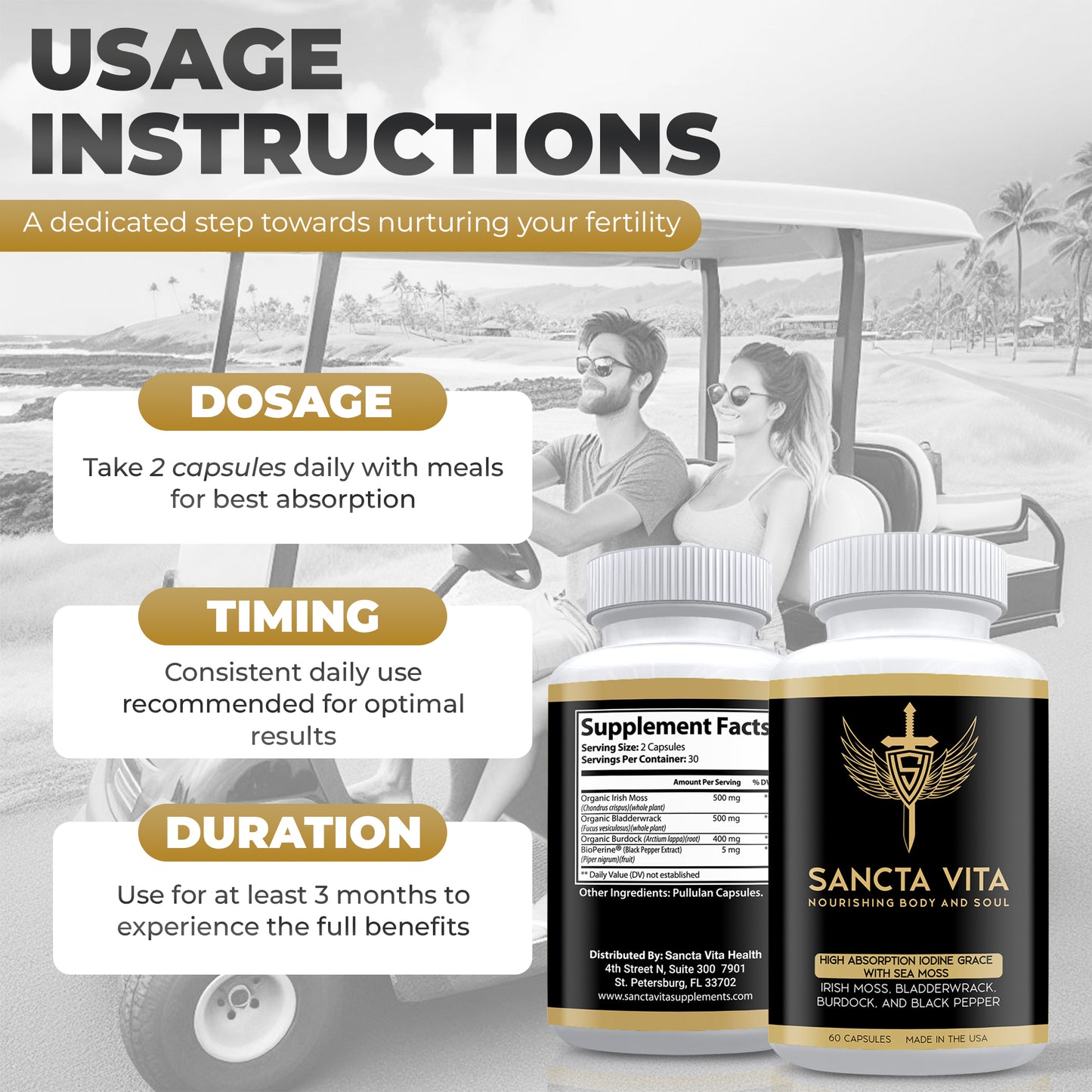
Iodine in Sea Moss: Top Benefits and How to Add It to Your Diet
Share
Sea moss, a nutrient-dense seaweed, has gained popularity as a natural source of iodine and other essential minerals. The iodine in sea moss offers numerous health benefits, from supporting thyroid function to boosting cognitive performance, making it a valuable addition to a balanced diet.
Key Takeaways:
- Sea moss contains 92 out of 102 essential minerals needed by the human body
- It can absorb iodine up to 30,000 times more than surrounding seawater
- The recommended daily intake is 1-2 tablespoons of sea moss gel or 2-4 grams of dried sea moss
- Iodine from sea moss supports thyroid function, hormonal balance, and cognitive health
- Excessive intake should be avoided to prevent thyroid dysfunction
The Power of Sea Moss: A Natural Iodine Powerhouse
Sea moss, also known as Irish moss, is a remarkable source of nutrients, containing an impressive 92 out of 102 essential minerals that our bodies need. What sets it apart is its extraordinary ability to absorb and concentrate iodine from seawater. In fact, sea moss can accumulate iodine at levels up to 30,000 times higher than the surrounding water.
The iodine content typically ranges from 47 to 150 micrograms per gram, making it a potent natural source of this vital mineral. This is particularly significant given that, according to the World Health Organization, approximately 2 billion people worldwide are iodine deficient.
For adults, the Daily Recommended Intake (DRI) of iodine is 150 micrograms. Pregnant women need more, at 220 micrograms, while lactating women require 290 micrograms daily. Sea moss can be an excellent way to meet these nutritional needs naturally.

Health Benefits: Why Iodine in Sea Moss Matters
The iodine found in sea moss offers a range of health benefits that can significantly impact your overall well-being. Let's explore some of the key advantages:
Thyroid Function Support: Iodine is crucial for the production of thyroid hormones T3 and T4. These hormones play a vital role in regulating metabolism, energy levels, and weight management. Interestingly, Japanese populations consuming 25 times more iodine through seaweed report lower rates of thyroid dysfunction.
Hormonal Balance: Iodine helps regulate estrogen in women and testosterone in men. It may also alleviate symptoms of estrogen dominance. While 70% of the body's iodine is stored in the thyroid, it's also found in breast tissue, the uterus, and ovaries, highlighting its importance in overall hormonal health.
Cognitive Benefits: Sufficient iodine levels have been linked to better cognitive performance, particularly in children. It supports focus, memory, and IQ development, making it an essential nutrient for brain health.
Immune System and Detoxification: Iodine aids in detoxifying heavy metals like mercury from the body. It also supports immune cells, including T-helper cells, boosting the body's defense mechanisms.
Incorporating Sea Moss into Your Diet: Forms and Usage
Adding sea moss to your diet is easier than you might think. It's available in several forms, including raw, dried, powdered, capsules, or gel. The recommended serving is typically 1-2 tablespoons of gel or 2-4 grams of dried sea moss daily.
Here are some simple ways to incorporate sea moss into your meals:
- Add sea moss gel to smoothies for a nutrient boost
- Stir it into soups and broths for added thickness and minerals
- Use it as a natural thickener in desserts
When comparing sea moss to other iodine sources, it's worth noting that sea kelp has a higher iodine concentration but a different nutrient profile. Iodized salt, while common, contains about 76 micrograms of iodine per gram.
It's crucial to exercise caution when consuming sea moss. Avoid overconsumption and track your iodine intake across all sources. Excessive intake (more than 1,100 micrograms per day) can disrupt thyroid function. Always choose high-quality, tested sea moss to avoid potential heavy metal contamination.
For those looking for a convenient way to incorporate sea moss into their diet, high-quality sea moss supplements can be an excellent option, providing a controlled and consistent dose of iodine and other beneficial nutrients.
Frequently Asked Questions
Q: How much iodine is in sea moss?
A: Sea moss contains 47-150 mcg of iodine per gram, depending on the source and quality.
Q: Can you consume too much iodine from sea moss?
A: Yes, excessive intake may lead to thyroid dysfunction. Stick to recommended dosages.
Q: Does sea moss gel contain iodine?
A: Yes, sea moss gel retains iodine alongside other minerals..
Q: Is sea moss or sea kelp better for iodine intake?
A: Both are great iodine sources. Sea kelp has higher iodine, while sea moss offers a broader range of nutrients.
Q: Can iodine in sea moss help with weight loss?
A: Yes, by supporting thyroid hormones, iodine can enhance metabolism and energy use, which aids in weight management.
References
1. Food Network. What Is Sea Moss and Is It Healthy?
2. Cleveland Clinic. 8 Potential Health Benefits of Sea Moss
3. BBC Good Food. Top 5 health benefits of sea moss
4. Banner Health. Is Sea Moss Good for You? Here is What to Know
5. WebMD. Sea Moss: Health Benefits and Side Effects
Sources:


